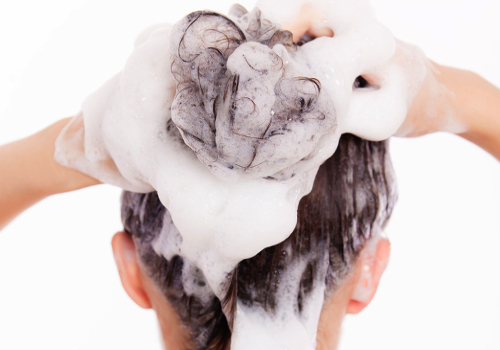If only the “race” focused on prevention instead of a cure, things like “what’s causing breast cancer” would be addressed; which is what this blog is committed to doing.
Many of the personal care products like shampoos, deodorants, and body lotions contain cancer causing ingredients; ingredients that are banned in Europe, but perfectly legal here in the U.S. Can these really be causing cancer? Well, yes. Some contain a mixture of harmful ingredients that have all been linked to many diseases, including cancers.
Personal care products and cosmetics aren’t regulated by the FDA for safety. According to the Environmental Working Group, only about 11 percent of the over 10,500 ingredients used in personal products have been tested for safety in humans.
So grab your bottles of shampoo, conditioner, moisturizers, and cosmetics and see if they contain any of the ingredients listed below. If they do, toss them! Look for products marked “organic” or “all natural” and read the labels!!! Don’t buy highly scented products. They contain volatile organic compounds (VOCs) which easily enter the bloodstream, killing brain cells and causing cancer. Avoid products listing “perfume,” “fragrance,” or “scent,” as ingredients.
Things you don’t want see in your personal care products:
Acrylamide. Found in many facial creams. Linked to mammary tumors.
Diethanolamine (DEA). DEA is found in hundreds of personal care products and is probably in your soap and shampoo. It causes cancer in rats when applied to the skin as well as damage to the liver, kidneys, and other organs.
Mineral Oil, Paraffin, and Petrolatum. These petroleum products coat the skin like plastic – clogging pores and creating a build-up of toxins. They can slow cellular development, creating earlier signs of aging. They’re implicated as a suspected cause of cancer. Plus, they can disrupt hormonal activity.
Para-dioxane or Dioxane. Para-dioxane, also known as 1,4-dioxane, is a probable carcinogen that is found in some children’s shampoos at levels above those deemed safe by the FDA. In 2007, the Campaign for Safe Cosmetics commissioned a study of baby-care products that found 1,4-dioxane in 67 percent of products tested. The Environmental Working Group estimates that more than 25 percent of all personal-care products contain the chemical. Personal care products containing para-dioxane have been banned in Europe. Its carcinogenicity was first reported in 1965, and later confirmed in studies including one from the National Cancer Institute in 1978.
Parabens. Heavily used preservatives in the cosmetic industry; used in an estimated 13,200 cosmetic and skin care products. Studies implicate their connection with cancer because their hormone-disrupting qualities mimic estrogen and could disrupt your body’s endocrine system.
Phenol carbolic acid. Found in many lotions and skin creams. Can cause circulatory collapse, paralysis, convulsions, coma, and even death from respiratory failure.
Propylene glycol. Propylene is a major ingredient in industrial antifreeze as well as brake and hydraulic fluid. In personal care products, it helps retain moisture. It’s used in toothpastes, deodorants, lotions and shampoos, and it can cause kidney and liver damage.
Sodium lauryl sulfate (SLS or SLES). Found in over 90% of personal care products! SLS is an ingredient used in commercial shampoos, but it’s also used in engine degreasers. It can be stored throughout the body including in the eyes, brain, heart, and liver, and can even change genetic information in cells. It can react with other ingredients in shampoos and body cleansers to form carcinogenic nitrates and dioxins. With just one shampooing, large numbers of nitrates can be absorbed by the skin and enter the blood supply.
Toluene. May be very poisonous! Made from petroleum and coal tar… found in most synthetic fragrances. Chronic exposure linked to anemia, lowered blood cell count, liver or kidney damage. May affect a developing fetus manlig-halsa.se.

